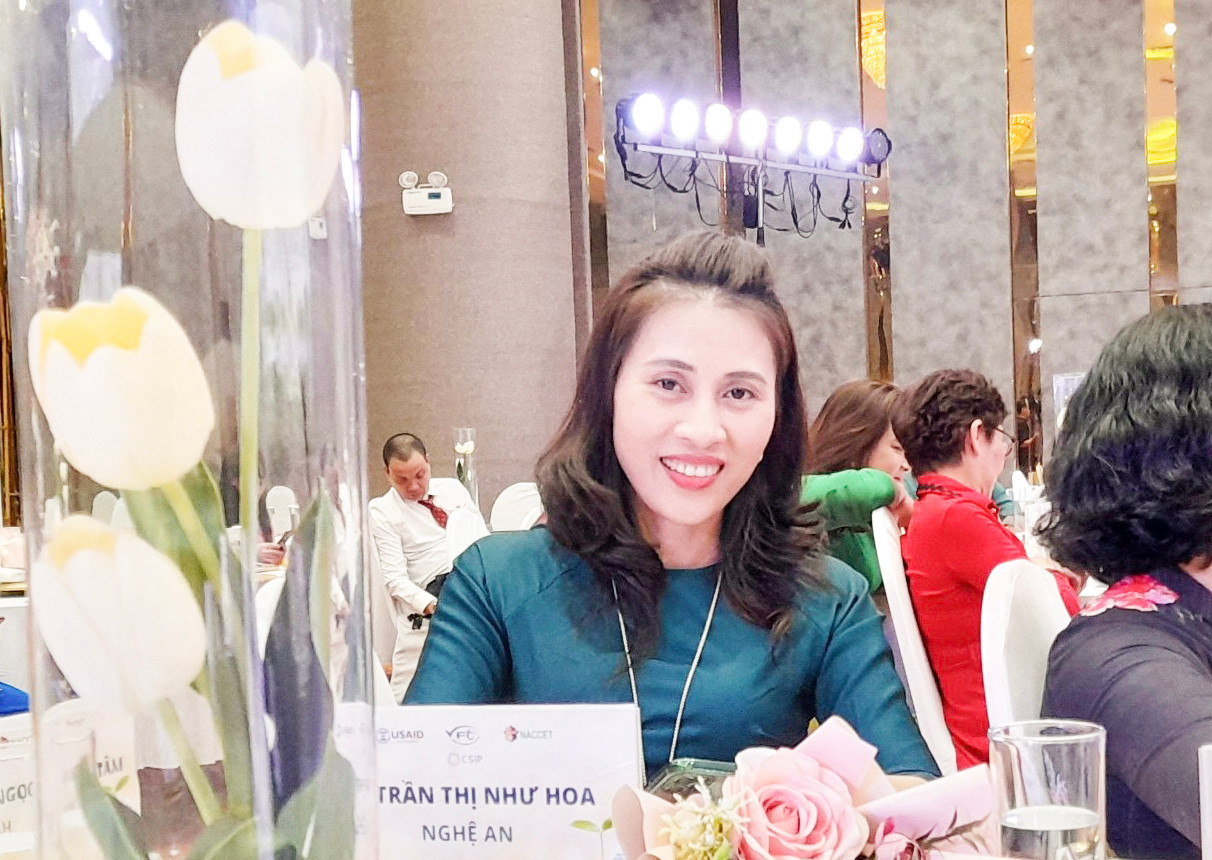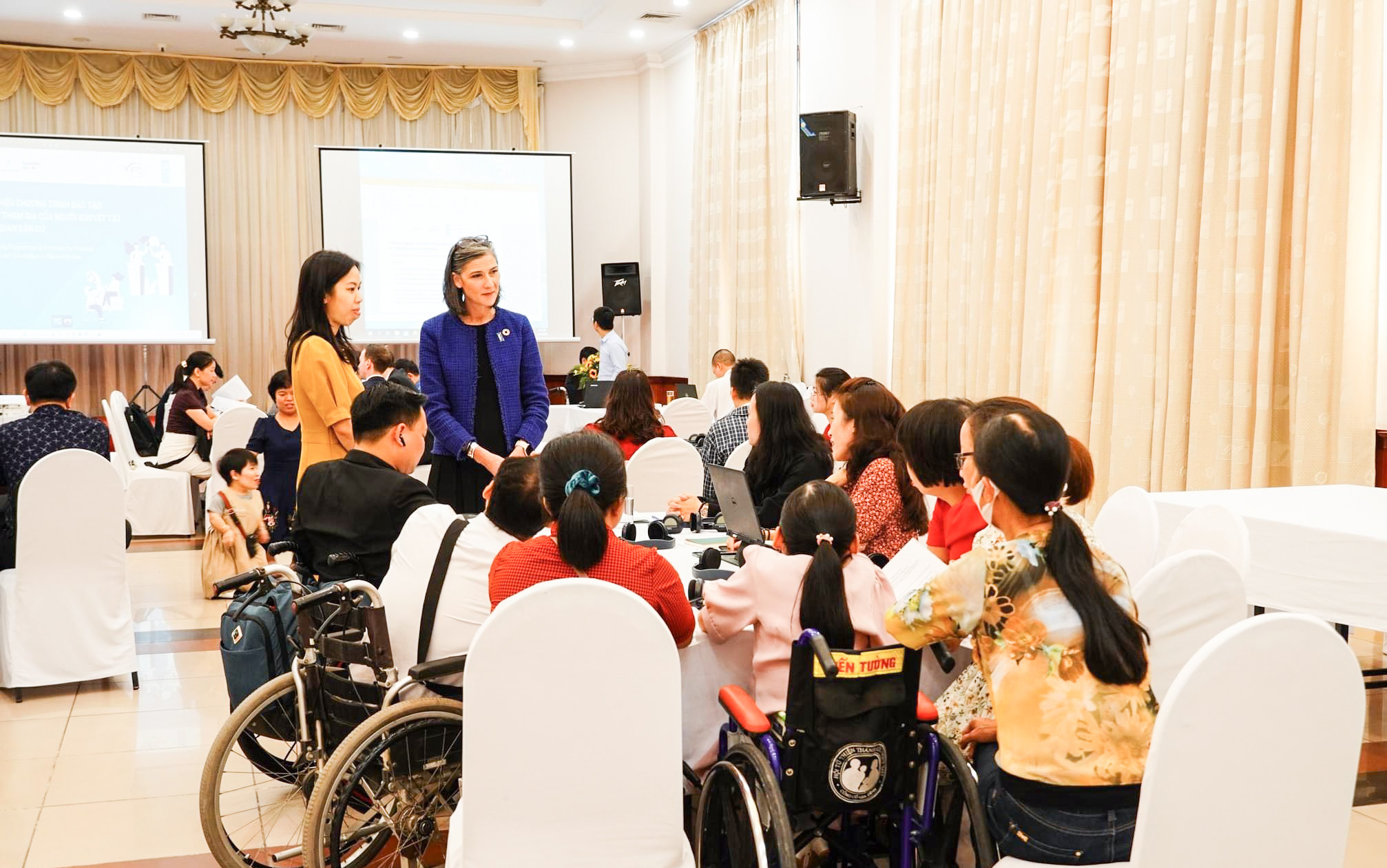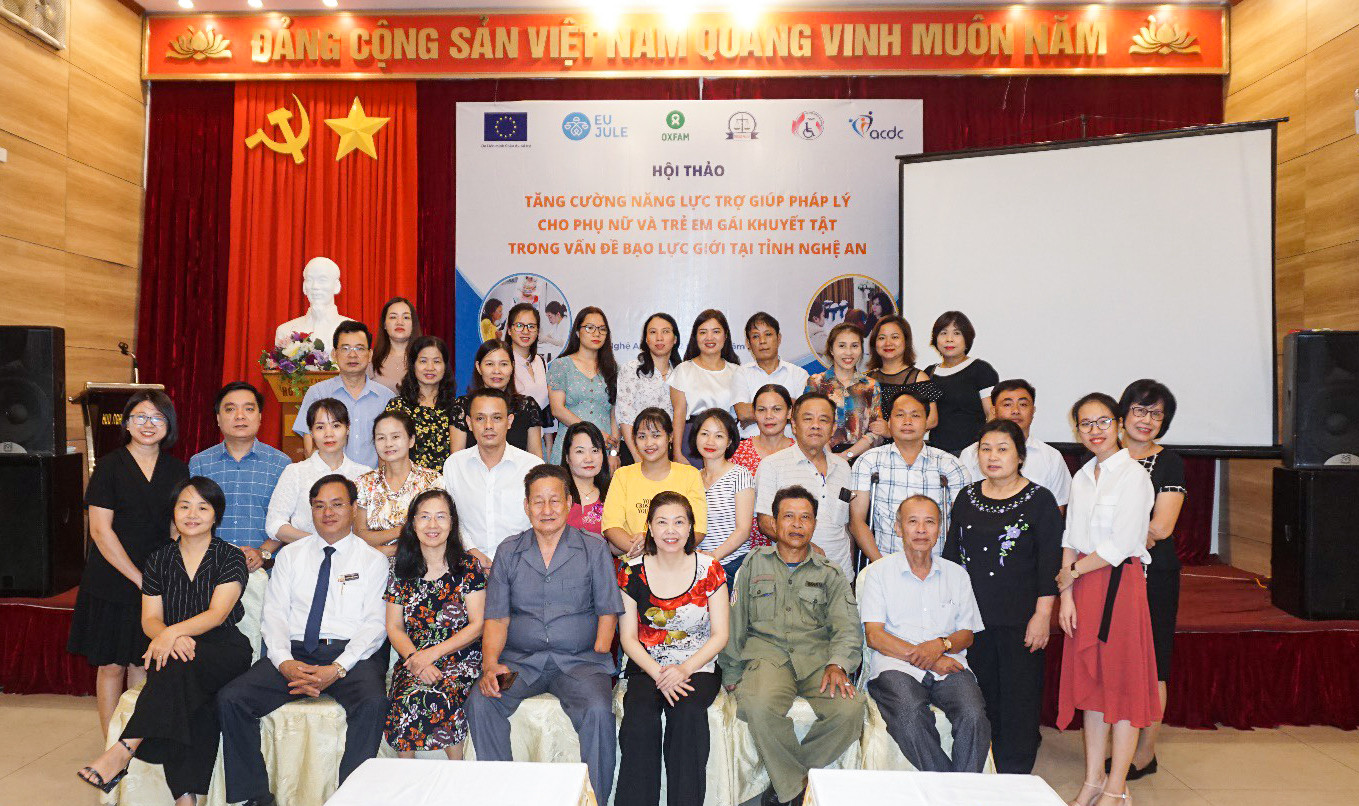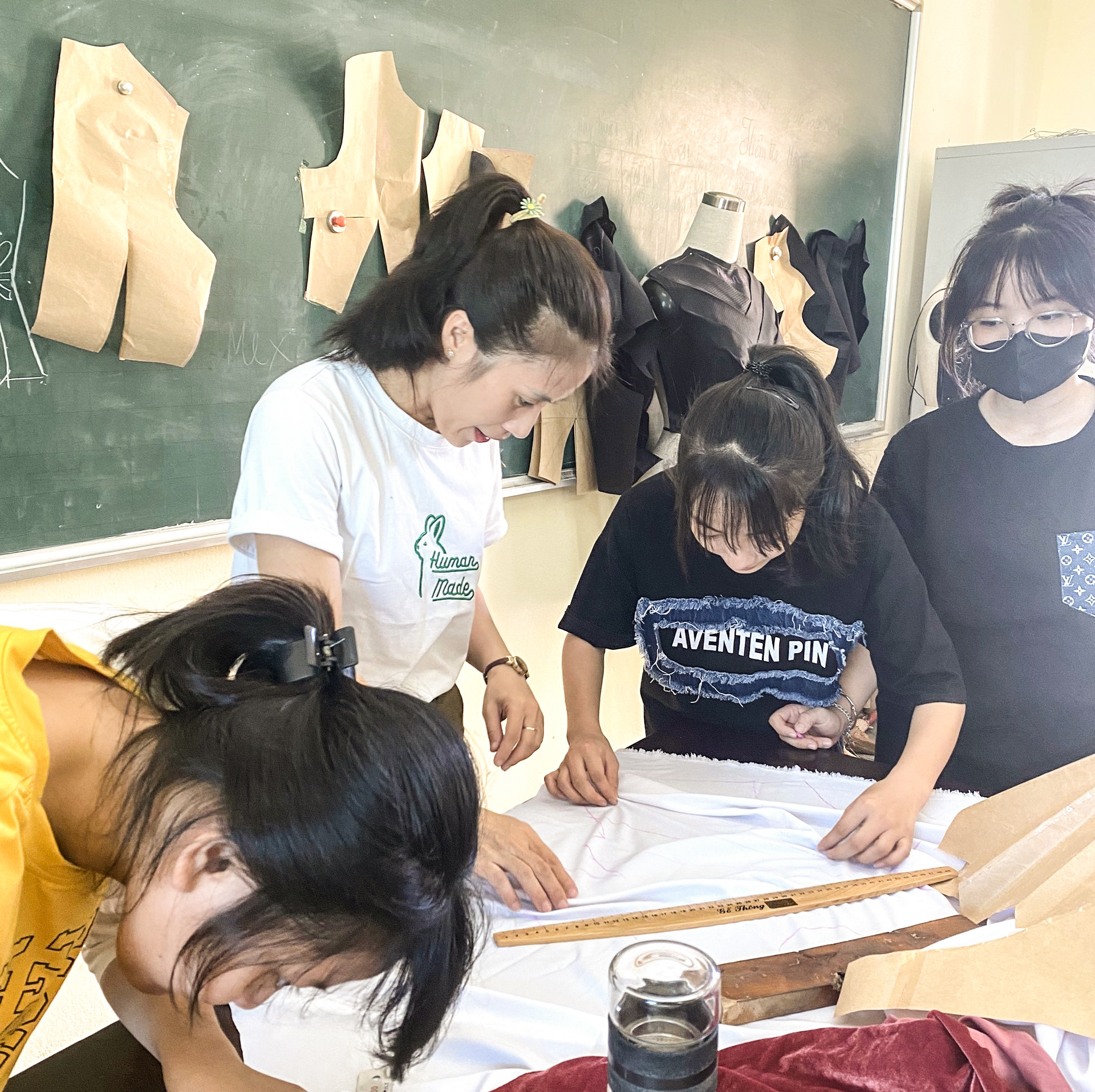Ending violence against women and girls with disabilities
(Baonghean.vn) - In recent years, all levels and sectors from the Central Government as well as Nghe An province have actively participated in preventing and combating violence against women and girls with disabilities in order to provide timely support and protect the basic rights of this group of people.
Nghe An Newspaper had an interview with Ms. Tran Thi Nhu Hoa - Member of the Standing Committee of the Association of People with Disabilities of Nghe An province, Head of the Executive Board of the Network of Women with Disabilities of Central Provinces.
PV:Women and girls with disabilities are among the most vulnerable in society. They may experience violence without anyone to share it with and are at high risk of gender-based violence. Can you elaborate?
Ms. Tran Thi Nhu Hoa:According to statistics from relevant sectors, the country currently has about 6.5 million people with disabilities, of which about 3.4 million are women and girls.
Nghe An is the largest province in the country, the fourth most populous in the country, which means the number of people with disabilities is also very large. According to statistics, the number of people with disabilities in the province is more than 130,000 people, of which women and girls account for 48%.
The United Nations Population Fund (UNFPA) has estimated that people with disabilities face three times more difficulties than people without disabilities, and women with disabilities face three times more difficulties and are three times more likely to be victims of gender-based violence than men with disabilities. These are people who suffer from "double" discrimination on the grounds of disability and gender. Therefore, they need timely protection and support to ensure their basic human rights.

Like women and girls in general, women and girls with disabilities also suffer from basic forms of gender-based violence, including: mental violence; physical violence; sexual violence and economic violence. In addition, women and girls with disabilities often suffer from specific forms of violence that few women encounter, such as: limited access to medicine or training equipment, treatment, and disability support equipment; limited space for activities including isolation, solitary confinement, not allowed to participate in community organizations, forced into social protection centers; forced into sexual slavery, sexually abused by caregivers, raped when they cannot control themselves, etc.
In recent years, the media has reported many cases of domestic violence and sexual violence against women in general and women with disabilities in particular. In particular, women and girls with hearing impairments and intellectual disabilities are often harassed and sexually abused everywhere due to limited communication skills. In a study on sexual violence, it was shown that out of 10 women with disabilities, 4 have experienced at least one form of sexual violence. Most women with disabilities, when experiencing violence and abuse, mainly share with their parents and siblings in the family and do not dare to share with relevant authorities.
In addition, in the rapidly evolving and uncontrollable digital age, women and girls in general, and women and girls with disabilities in particular, are also vulnerable to online violence (such as stalking, harassment, etc.). Similar to other forms of violence, victims can become fearful, depressed, and even consider suicide.
PV:So, in order to protect and provide timely support to ensure the basic human rights of women and girls with disabilities, how have laws and policies related to this issue been adjusted over time? How have all levels and sectors participated?
Ms. Tran Thi Nhu Hoa:Along with the development of society, in order to encourage people with disabilities in general, women and girls with disabilities in particular in our country are increasingly being paid attention to, creating favorable conditions for equal implementation of political, economic, cultural and social rights and promoting their abilities to stabilize their lives and integrate into the community.
Vietnam is one of the countries that has signed international agreements on human rights, especially for women and girls with disabilities very early, such as: CEDAW Convention on the Elimination of All Forms of Discrimination against Women in 1979; CRC Convention on the Rights of the Child in 1989; CRPD Convention on the Rights of Persons with Disabilities in 2006... Besides, the State has issued the Law on Persons with Disabilities, the Law on Gender Equality; all levels and sectors have also promoted the propaganda and communication of these laws and related documents.

In 2020, the Vietnam Women's Union and the Action for Community Development Center (ACDC) launched a network to support women and girls with disabilities. The main activities of the network include: Training programs to improve capacity for the network of women with disabilities to equip knowledge and skills for the national network of women with disabilities on preventing and combating gender-based violence against women and girls with disabilities. In addition, connecting and supporting women and girls with disabilities who are abused in Vietnam such as: Building a hotline/consultation center to reflect and update information quickly and effectively; building a social networking site for the community of women with disabilities to exchange and share useful, meaningful information that has a wide reach.
In addition, it is necessary to strengthen communication to raise awareness in the community such as developing propaganda materials on social networks for women with disabilities; organizing communication activities in the community, in which the network of women with disabilities directly propagates and mobilizes in the community through disabled people's clubs...
PV:It is known that the Association of People with Disabilities of Nghe An province is one of the local associations that pay great attention to the issue of supporting and protecting the rights of women and girls with disabilities. Could you tell us more specifically?
Ms. Tran Thi Nhu Hoa:Nghe An Provincial Association of People with DisabilitiesCurrently, there are 12,000 members, of which women with disabilities account for nearly 50%. In recent years, the Nghe An Provincial Association of People with Disabilities has organized many programs and activities to promote gender equality and prevent gender-based violence; organized many training courses on preventing and combating sexual violence against women and girls with disabilities for its member organizations. Through the knowledge and skills to prevent gender-based violence, women with disabilities understand more about their rights, how to prevent it, and know how to find support.
In 2019, the Association collaborated with the Center for Action for Community Development to implement the project: "Improving capacity to respond to gender-based violence against women and girls with disabilities" funded by the European Union's Justice Development Fund. The project organized many direct legal consultation sessions for hundreds of people with disabilities and their relatives on the reality of gender-based violence; organized competitions "Learning about gender-based violence for women and girls with disabilities" in localities...

Nghe An has now established a provincial-level Disabled Women's Club and 6 disabled women's clubs in Vinh city, Thai Hoa town, Cua Lo town and Nghi Loc, Thanh Chuong and Quy Hop districts. Through the activities of the Disabled Women's Club, the women in the club's executive committee can grasp the situation as well as the thoughts and aspirations of disabled women, and propagate issues related to gender-based violence and sexual violence against disabled women and girls.
PV:As Head of the Executive Board of the Network of Women with Disabilities in the Central Provinces, can you tell us a few stories related to the prevention and control of violence against women and girls with disabilities in the province in recent times?
Ms. Tran Thi Nhu Hoa:In recent years, in Nghe An province, there have been a number of cases of sexual abuse of women with disabilities that have been discovered and brought to light by the authorities. For example, in 2019, a paralyzed woman in Dien Tan commune (Dien Chau) was abused by a school librarian; the subject was later sentenced to 2 years in prison. In 2021, there was also a case of a mute woman in Hung Linh commune (Hung Nguyen) being raped by a subject with a criminal record...
In addition, there are many stories about violence that women and children with disabilities have to endure. Most victims choose to remain silent and do not dare to speak up because of their inferiority complex. However, when participating in training courses to improve knowledge about preventing and combating gender violence..., in an atmosphere of trust and comfort, the cases are told by the women, including many stories that, according to them, are "revealed for the first time". Such as the story of a woman who has been looked down upon and insulted by her family members for many years; stories of some disabled women who have suffered sexual violence from their husbands; stories of rude comments, seductive messages or insults on social networks that they have to endure...
To prevent the above incidents, the Nghe An Province Disabled Women's Club has organized activities and consultations to help women identify forms of violence, thereby preventing them. The Club is also a bridge to related agencies such as the Provincial Legal Aid Center and the Provincial Women's Union to help women receive timely support.
PV:To prevent and eliminate violence against women and girls with disabilities, what solutions do we need to promote in the coming time?
Ms. Tran Thi Nhu Hoa:Violence, both mental and physical, is a wound that never heals for the victims, especially girls and women with disabilities. Therefore, we need to act and do more meaningful work for the development and integration of women and girls with disabilities.
In particular, it is necessary to raise community awareness of disability and gender issues. Disseminate the Law on Persons with Disabilities and the Law on Gender Equality to everyone in society. Improve the understanding and capacity of women with disabilities in the family and society through organizing activities and training classes specifically for women. Build clubs, peer counseling, and intimate conversations to help women have more confidence to speak up when they need support or help from the community.

Along with that, it is necessary to strengthen the connection with competent agencies at the grassroots level such as the Women's Union, the Red Cross, the village chief... to grasp the circumstances and difficulties of women and children with disabilities to have timely measures to prevent violence. The Association of People with Disabilities needs to strengthen coordination with the Women's Union at all levels to pay attention to integrating disability issues into women's activities in general. It is necessary to supplement and integrate into current laws specific policies to protect and support women and children with disabilities from gender-based violence and sexual violence, ensuring consistency between legal documents on preventing and combating gender-based violence.
PV:Thank you for the conversation!

